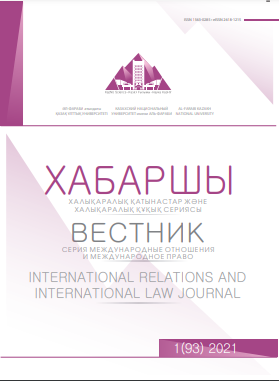National and cultural features of praise in Kazakh, French and English
DOI:
https://doi.org/10.26577/IRILJ.2021.v93.i1.07Abstract
Within the framework of this article, the authors will analyze the national and cultural features of evaluative conversations in Kazakh, French and English, methods of their transmission in these languages, comparative study of structural and semantic differences of these speech actions and determine their national and cultural harmony. Like other speech acts, the assessment reflects the culture, traditions, customs, rules of decency, and rituals of the nation. Each nation has its own assessment system. An object, phenomenon, action, or behavior that has a high, positive rating in one country can be negatively evaluated in another country. If a person's actions and behavior correspond to the rules of decency, Customs and traditions of that country, then a positive assessment is given to him, and a negative assessment is given if the opposite is true. Each nation, when evaluating actions, behavior, objects and phenomena, is based on its own national essence, national worldview. That is why the culture, customs, rules of etiquette, life experience, and worldview of each nation are the basis of national culture of speech assessment.
Key words: intercultural communication, praise, national culture, cultural features, linguistic characteristics.














